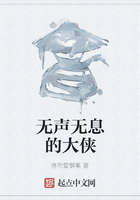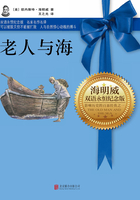While the convention was in session at Utica I had an interview with Mr. George Dawson, who was editor of the Albany Evening Journal and he became convinced that he had nothing to lose by entering at once into an open antagonism, if there was any way by which it could be made effective.
I said to Mr. Dawson: "The only salvation for those who have been benefited during the era of liberty occasioned by President Hayes's civil-service policies is to prevent the national convention adopting the unit rule."The unit rule is that if the majority of the delegates from any State make a decision, the chairman of the delegation shall cast the entire vote of the delegation from the State for the result arrived at by the majority, whether it be a candidate or a policy.
Under the unit rule I have seen a bare majority of one vote for a candidate, and then the chairman of the delegation cast the entire vote for the candidate, though the minority were very hostile to him.
The delegates of the State convention at Utica returned to Albany that night. Many of them were State senators whose decapitation was assured if the old machine supported by federal patronage was revived. State Senator Webster Wagner was one of them. He and Ichartered a train and invited the whole State delegation to go with us to Chicago. In the preliminary discussions, before the national convention met, twenty-six out of seventy-eight delegates decided to act independently.
Wayne MacVeagh, a lifelong friend of mine, had a strong following in the Pennsylvania delegation, and after he learned our position brought over also his people. Emory Storrs, who led the Illinois delegation, came to me and said that if we would not boom Elihu B. Washburne, who was a candidate for the nomination, we would have the Illinois vote. The result of the canvass was that the convention decided against the unit rule. This released so many individual delegates to independent action that the field was cleared and nobody had majority. The leading candidates were General Grant, James G. Blaine, and John Sherman.
In the history of convention oratory the nominating speeches of Senator Conkling for General Grant, and James A. Garfield for John Sherman take the highest rank. Conkling took a lofty position on the platform. His speech was perfectly prepared, delivered with great dramatic effect, and received universal applause on the floor and in the gallery.
General Garfield, on the other hand, also a fine-looking man and a practised orator, avoided the dramatic element, in which he could not compete with Conkling, but delivered a speech along the line of the average thought and general comprehension of his audience that made a great impression. It was a common remark:
"He has nominated himself."
There were among the audience thousands of Blaine enthusiasts.
No public man since Lincoln ever had such enthusiastic, devoted, and almost crazy followers as Mr. Blaine. These enthusiasts were waiting to raise the roof and secure the nomination of their candidate when the chosen orator should present their favorite.
The gentleman selected to present Mr. Blaine was eminent in business and great enterprises, but I doubt if he had ever spoken before except to a board of directors. Of course, in that vast hall such a man was fearfully handicapped and could not be very well heard.
He closed by naming his candidate somewhat like this: "I now have the pleasure and honor of proposing as the candidate of this convention that eminent statesman, James S. Blaine." Nearly every one in the convention knew that Mr. Blaine's middle name was Gillespie.
The Blaine followers, whose indignation had been growing throughout the speech, because they expected the very highest type of oratory for their favorite, shouted in chorus, "G., you fool, G!"When General Garfield was voted for, he indignantly repudiated the votes as an imputation upon his honor, as he was there to nominate his friend, John Sherman. Senator George F. Hoar, of Massachusetts, presided at the convention. He interrupted Garfield by calling him to order, as it was not in order to interrupt the calling of the roll, and he did so for fear that Garfield would go so far as to say he would not accept the nomination if it were made. On the last ballot State after State, each striving to get ahead of the other, changed its vote from Sherman or Blaine to Garfield, and he was nominated.
I sat close to him as a visitor to the Ohio delegation. It was a curious exhibit of the ambition of a lifetime suddenly and unexpectedly realized by a highly sensitive and highly wrought-up man. He was so overcome that he practically had to be carried out of the convention by his friends.
Senator Conkling was very indignant at the result and expressed his anger with his usual emphasis and picturesqueness. The Ohio leaders were then anxious to placate New York, but Conkling would have nothing to do with them. They then came to us, who had been opposed to the unit rule, and wanted suggestions as to which New Yorker they should select for vice-president. Levi P. Morton was suggested. Mr. Morton said he would accept if Senator Conkling was willing to agree to it, and that he would not act without the senator's acquiescence, as he was an organization man. The senator refused his consent, and told Mr. Morton that no friend of his would go on the ticket.
It was then suggested that they try General Arthur, who was Conkling's first lieutenant and chairman of the Republican State Committee of New York. Senator Conkling made the same answer to General Arthur, but he frankly said to Conkling: "Such an honor and opportunity comes to very few of the millions of Americans, and to that man but once. No man can refuse it, and I will not."And so General Arthur was nominated for vice-president.















